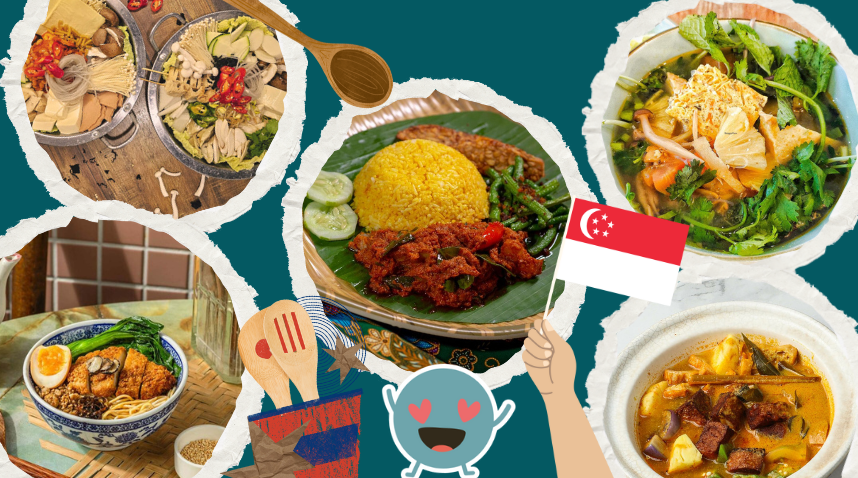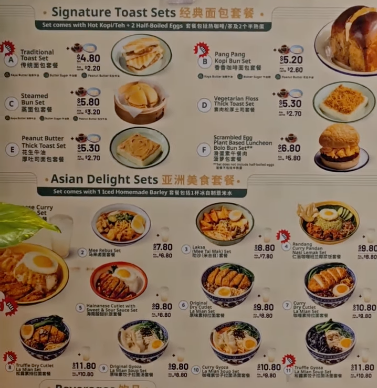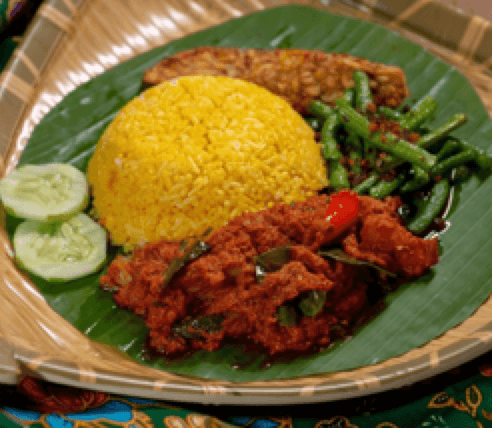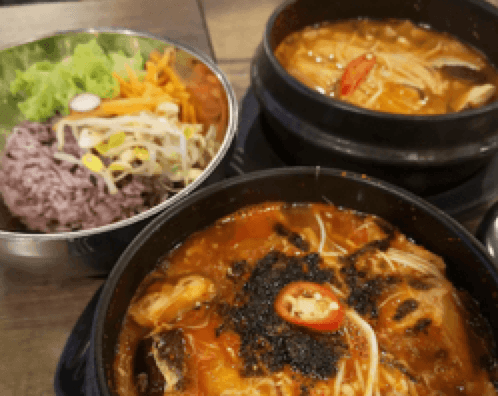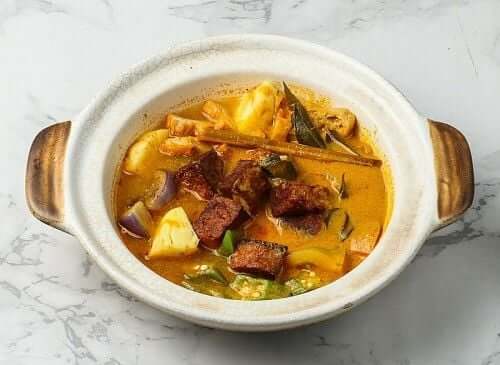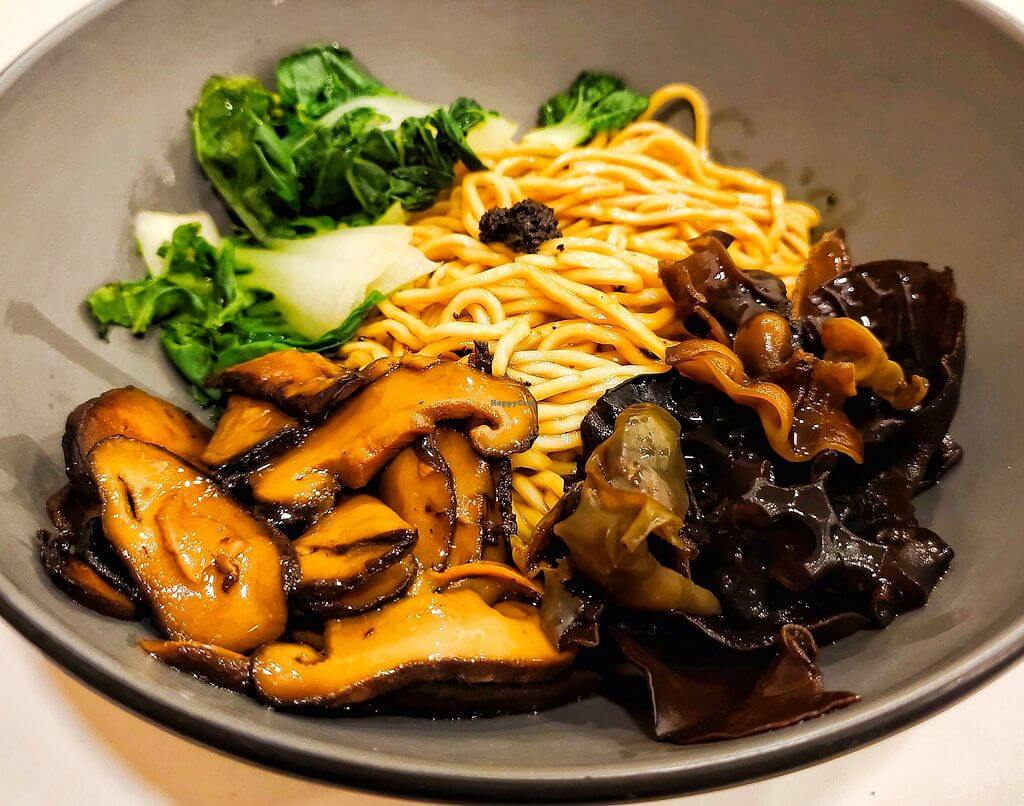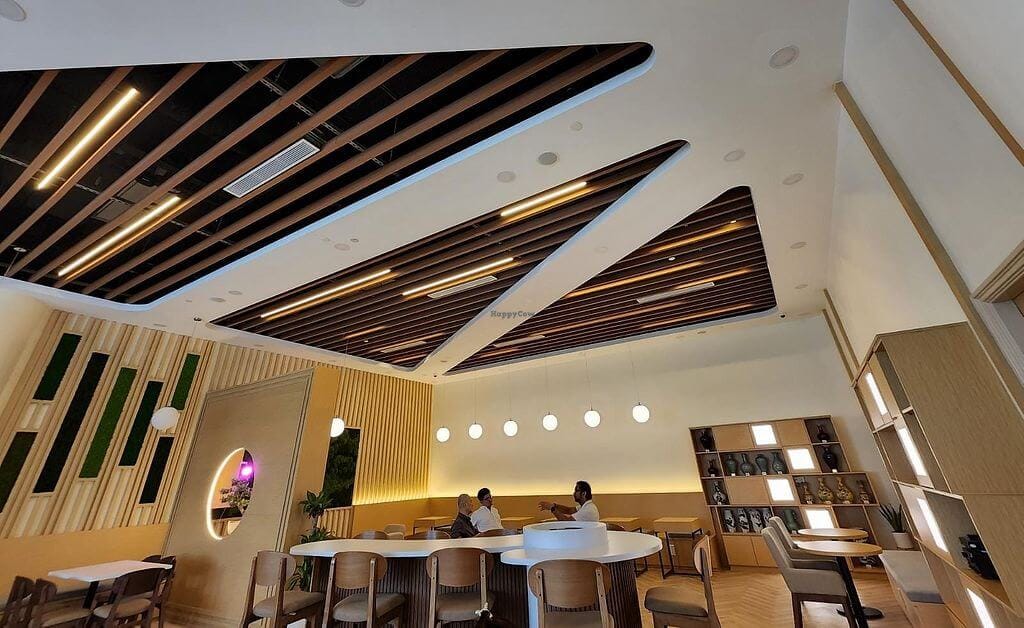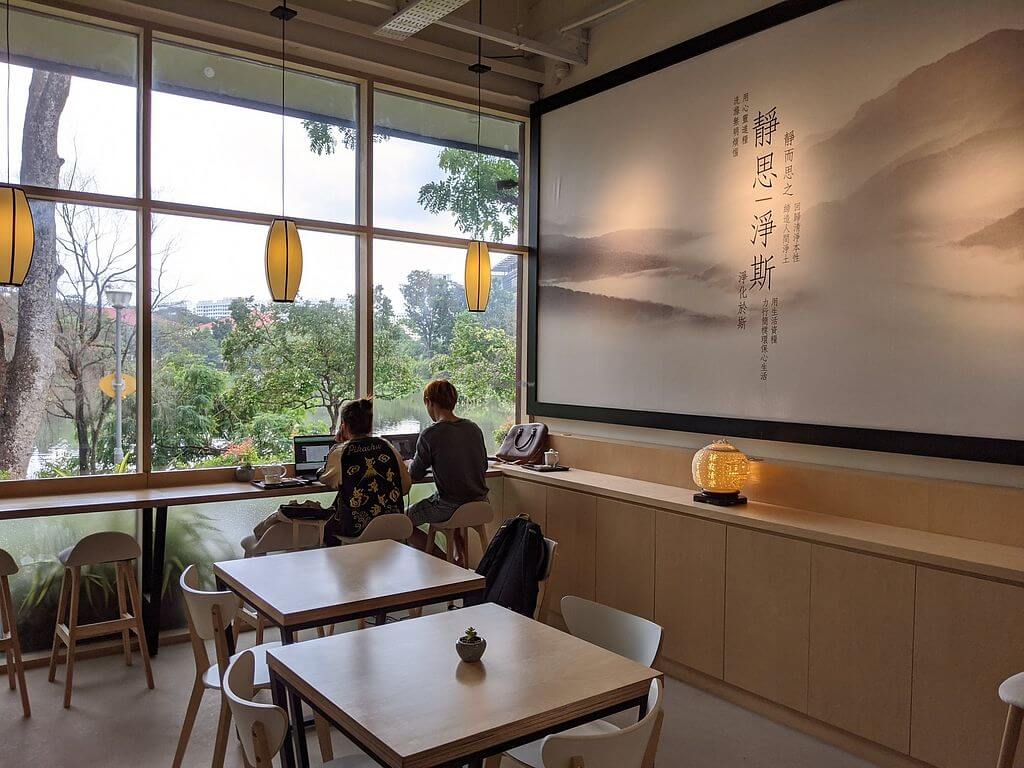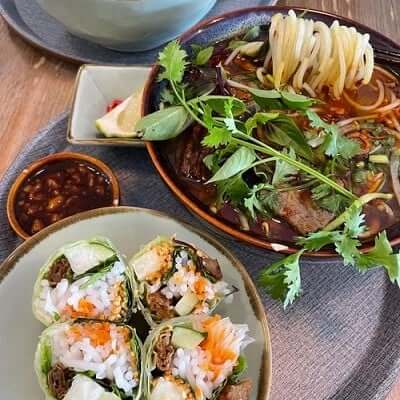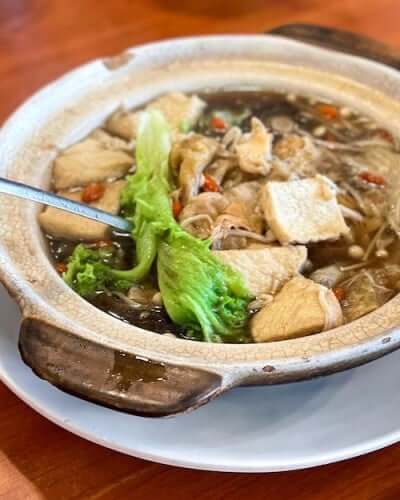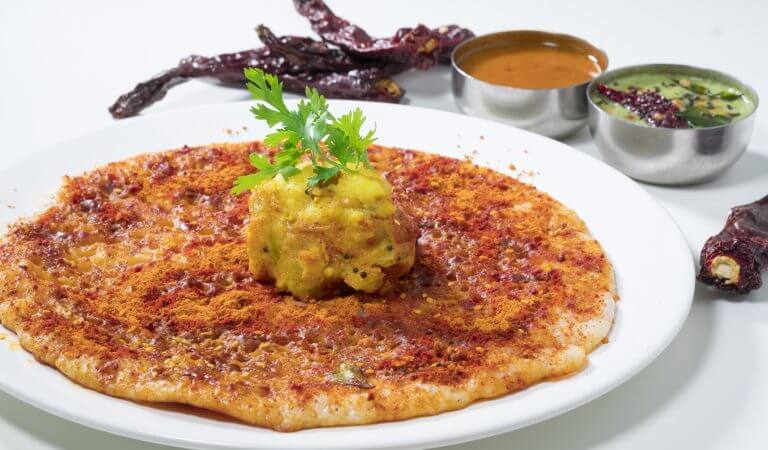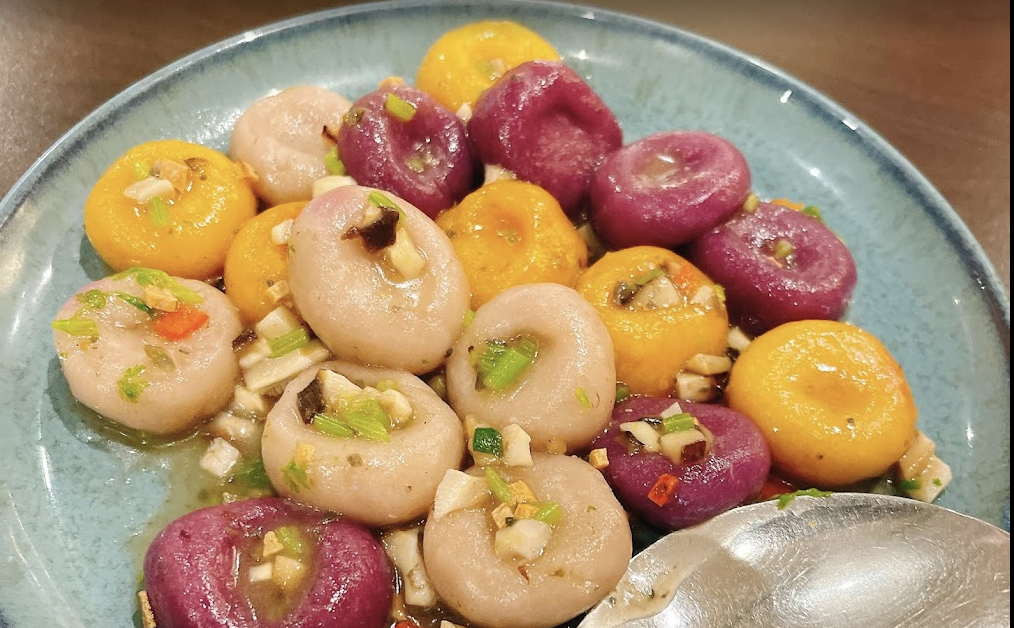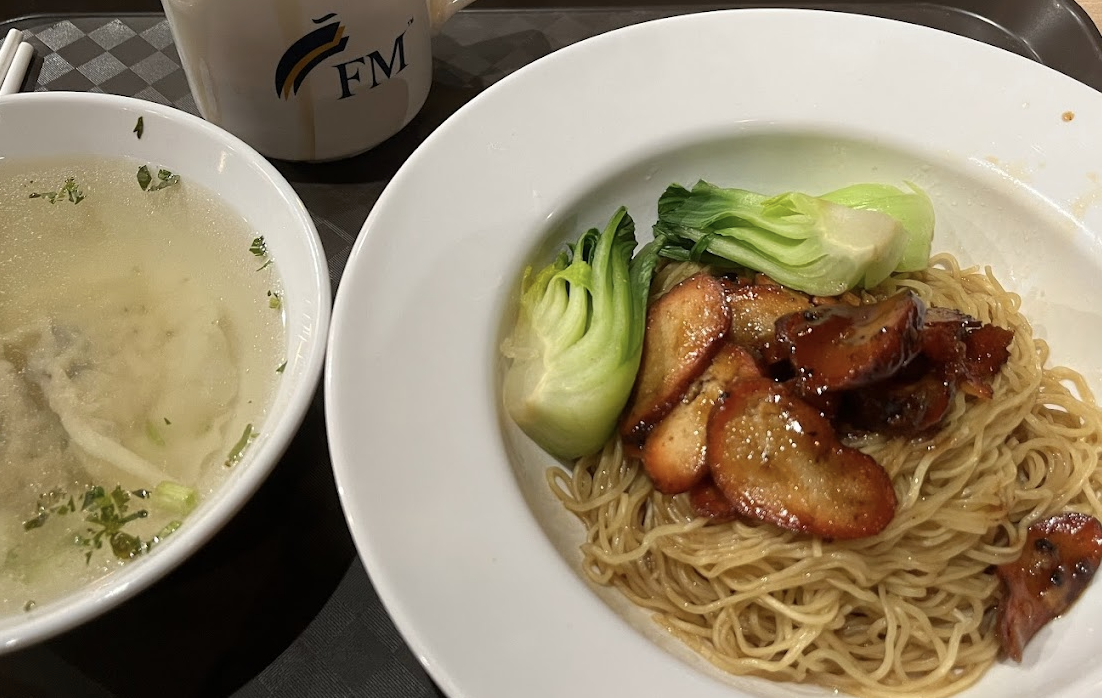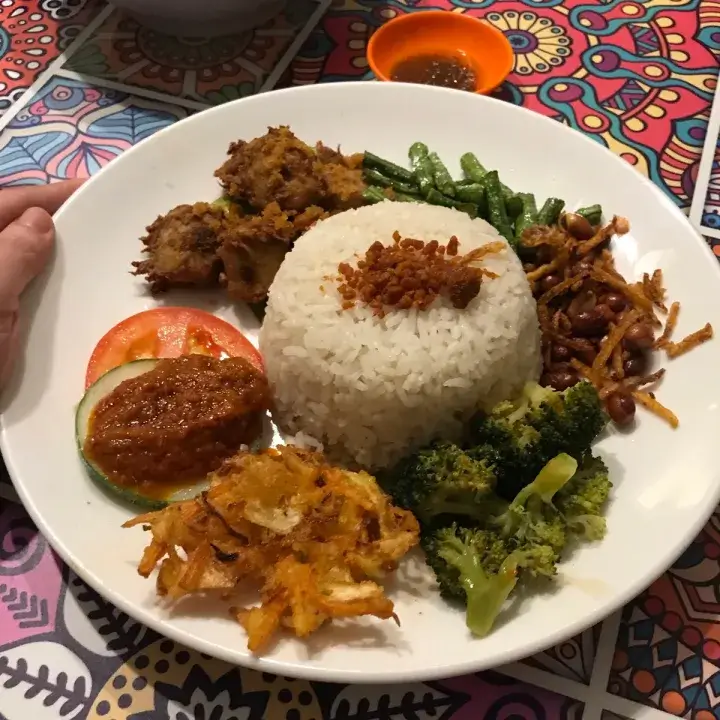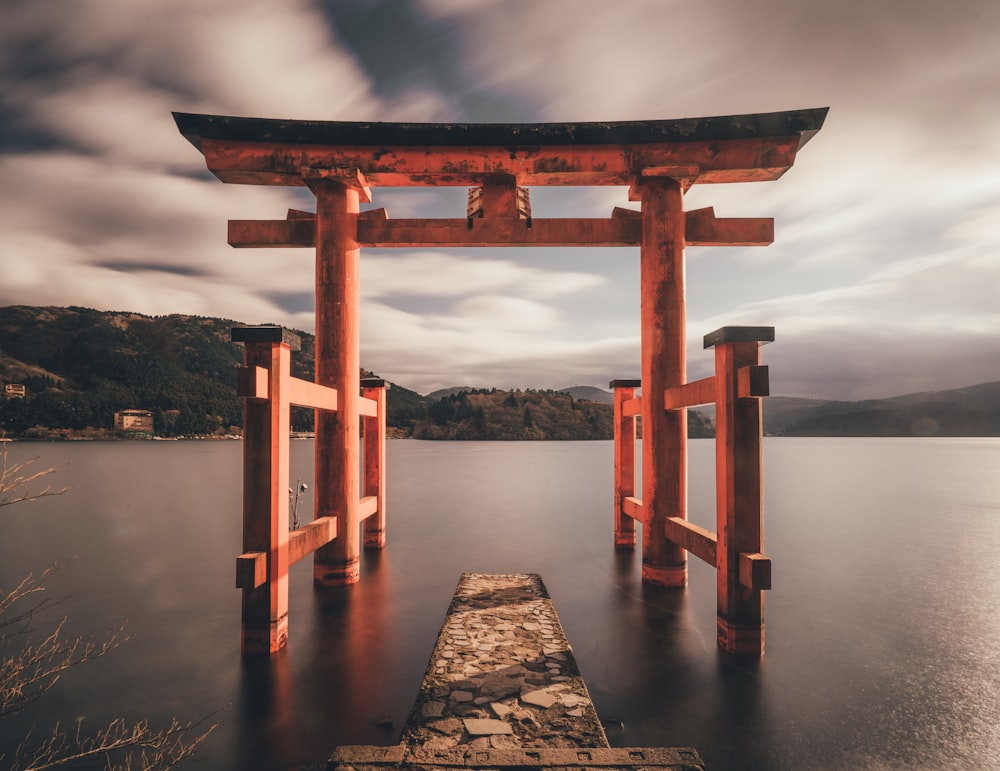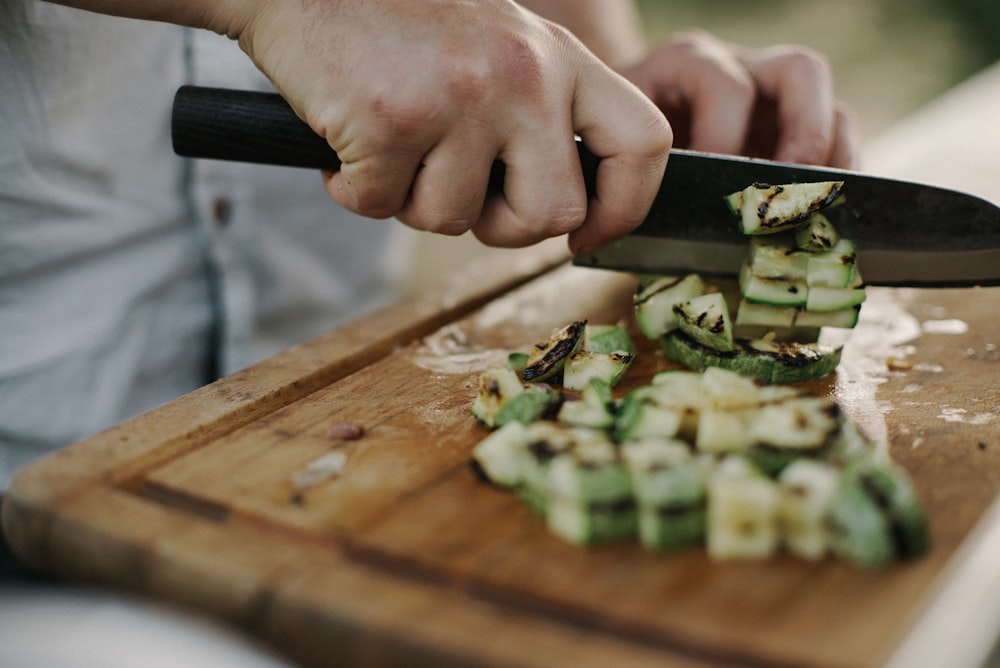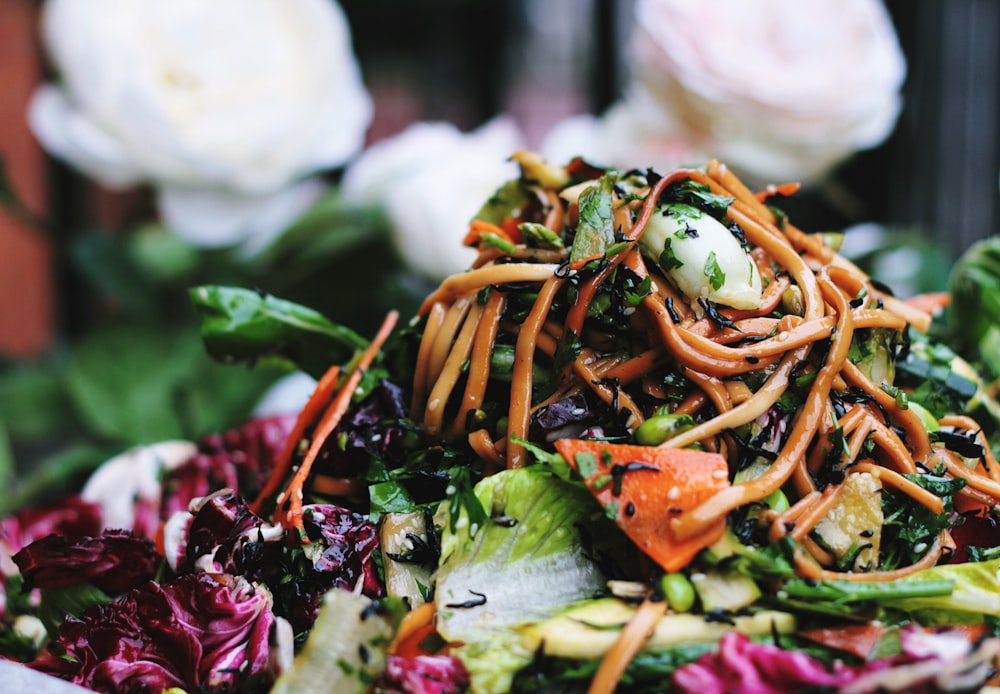
Stressed and struggling to eat healthily? Read this.
TLDR: Feeling guilty about unhealthy meals? Learn how to change your mindset using Buddhist teachings.
Hot cakes, sausages, scrambled eggs, hash browns, maple syrup, and butter. That was my breakfast at McDonald’s one Sunday. I enjoyed consuming them, but by the end of the meal, a wave of discomfort washed over me. My joy was eclipsed by a nagging inner dialogue: Should I have eaten this? How will this meal impact my weight and health?
Health: A precious gift

Knowledge is wealth. I have access to plenty of information about staying healthy thanks to science and the internet, which tells me what I need to avoid: food that is ultra-processed, or food that has pesticides, herbicides, hormones, added sugar, or unhealthy fat. The Buddha also praised health as a gift. Dhammapada verse 204 states that:
“Health is the greatest gift,
Contentment is the greatest wealth,
A trusted friend is the best relative,
Nibbana is the greatest bliss.”
It is indeed the greatest gift because it allows us to fulfil our responsibilities, do good, and cultivate our minds. Taking care of ourselves helps us avoid unnecessary suffering caused by health-related problems.
Being fit also makes us feel mentally and physically better. However, should guilt accompany every meal that I deem less-than-ideal? To me, an ideal meal is loaded with vegetables, balanced with some protein and carbs, and is low in oil and processed food.
Can I pursue health while avoiding unwholesome states of mind such as guilt, aversion, and dissatisfaction?
I believe so. Here are some of my reflections guided by the Buddha’s teachings to change how I approach eating while still striving to stay healthy.
Seeing Kamma in the food that we eat

To be reborn as human beings and have food to eat, a great deal of merit is required. Merit refers to the results of our good deeds.
According to the Laws of Kamma, when we think, speak, or act with good intentions, positive outcomes and happiness follow. Conversely, deeds driven by bad intentions—rooted in greed, hatred, and ignorance—lead to negative results and suffering.
Each meal is the fruit of the good seeds we have sown in the past and is a blessing. Since we cannot predict when or how these blessings will manifest, let us treasure every meal with gratitude, appreciating the good kamma accumulated from past lives.
We are dependent on even the smallest conditions for survival
Favourable external conditions are essential for food to be available to us: the right amount of sunlight, water, and nutrients, along with time. If you have ever grown fruits or vegetables, you know how long it takes for a seed to germinate, grow, and bear fruit.
Some vegetables can only be harvested once, while certain trees take years to produce. Beyond that, food must reach us without disruption. War, famine, pandemics like COVID-19—any of these can interrupt the chain of access.
Each meal is also the culmination of the efforts of multiple living beings: from farmers and workers across the entire supply chain to functioning ecosystems that depend on insects, animals, and other organisms.
Moreover, the meal before you is made possible by your own hard work or that of your parents/partner, who earned the means to provide it—no matter how simple or modest it may be.
Knowing that ‘Enough’ is relative
Sometimes, having food is enough. Some of the challenges we face with food stem from the overwhelming amount of information available and the freedom of choice we enjoy—privileges often tied to higher socioeconomic statuses.
While this abundance is a blessing, it can also complicate our relationship with food and raise our standards significantly.
For instance, anything else apart from my ideal meal would make me feel like I am not eating “well”. In this pursuit of “better” food, we can easily forget that simply having a meal that provides us with some nutrients and energy is already enough to sustain us through the day.
A meal that feels inadequate to us may be a source of much-needed sustenance for someone else. As some mothers would tell their children—albeit with a touch of exaggeration—“the children in Africa/India have no food to eat, you know.” This perspective helps us loosen our grip on perfection and appreciate simply being fed.
Are your strings too tight?
Developing a good habit takes time, and balance is essential. Venerable Sona was a monk whose practice did not progress despite exerting a lot of effort such that his feet bled from practising walking meditation continuously.
Buddha then gave him an analogy: If we were to tune a musical string instrument and made the strings too loose or taut, it would not play properly. Similarly, “if effort is over aroused, it would lead to restlessness; if effort is too slack, it would lead to laziness. Therefore, Sona, you should arouse your effort evenly, and keep the spiritual faculties balanced…”.
This advice can be applied to our effort towards living healthily too. Modern insights align with this teaching, such as those found in Atomic Habits, a book that presents evidence-based strategies for building new habits.
It emphasises that sustaining a habit requires starting small with room for growth, making it rewarding, and prioritizing consistency over intensity—principles that echo the Buddha’s guidance on finding balance.
The hard truths of taking care of ourselves
Sickness, ageing, and death are inevitable. Regardless of how well we take care of ourselves, we will grow older, and age-related decline will follow.
Minor or chronic illnesses may also arise due to the ripening of previous bad kamma, i.e., deeds performed with unwholesome intentions rooted in greed, hatred, and ignorance.
While we can eat healthily, exercise, and do our best to maintain our youth and health, these efforts cannot stop the passage of time or the impermanent nature of life. Age and sickness will eventually catch on, as this is the reality of existence.
The impermanence and suffering inherent in life give us a reason to practice the dhamma. Ultimately, we all wish to avoid aging, sickness, and death but they are inevitable so long as we are bound to samsara–the cycle of birth and death–and lack wisdom to see things as they truly are. This is the very reason why we practice the noble eightfold path: to cultivate the wisdom needed to free ourselves from this endless cycle of suffering, once and for all.
Connecting the dots
Having reflected on these, I feel a sense of gratitude and contentment. I am thankful for the simple privilege of having food and learned to be more content with whatever form my meal takes.
When I enjoy an expensive or nutritious meal, I appreciate the merits I have accumulated that made this possible. I am also grateful for the hard work that enables me to pay for each meal or for the generosity of the person treating me.
On the other hand, if I eat something I perceive to be unhealthy, I will remind myself to make better choices in the future, be content that I get to satisfy my hunger, and mindfully enjoy the meal by being present.
This involves being aware of why I am eating, what I am eating, and how I am eating, as well as observing the feelings and sensations that arise in the process.
Now that I am grateful, I am reminded that not everyone gets to eat when they are hungry, and this reflection gives rise to compassion and generosity.
I feel the urge to give others the chance to have a hearty meal through almsgiving and charity. At the same time, I recognise that some things are beyond my control, which helps me let go of my attachment to specific outcomes and find greater peace.
Finally, I am purposeful with my time, and mindful of the efforts to sustain this body. I also understand that nourishing this human form serves a higher purpose: to cultivate the mind, develop wisdom, and walk the path toward liberation—a feat unique to the human experience, made possible by our mental faculties and the delicate balance of pleasure and suffering we experience.
Food contemplations for a healthier mindset

To maintain the right mindset about food, there are two contemplations that offer different approaches to mindful eating. You may choose the contemplation that resonates with you.
The first contemplation, practised by the Sangha–community of monks and nuns–before meals, focuses on discipline, moderation, and purpose. It reminds us to eat for nourishment rather than indulgence:
“Wisely reflecting…I eat this food. not for fun, not for pleasure, not for fattening, not for beautification, but only for the maintenance and nourishment of this body, for keeping it healthy, for helping with the holy life. Thinking thus, I will allay hunger without overeating, so that I may continue to live blamelessly and at ease.”
The second contemplation by Venerable Thích Nhất Hanh, is more poetic, expansive, and relational, emphasising interconnectedness, gratitude, and compassion. It broadens our awareness to include the effort of countless beings and our responsibility to the planet:
- This food is the gift of the whole universe, the earth, the sun, the sky, the stars and the hard and loving work of numerous beings.
- May we eat with mindfulness and gratitude so as to enjoy every bite.
- May we transform our unwholesome mental formations, especially those that cause us harm, as they indirectly harm all we touch.
- May we keep our compassion alive by eating in such a way that we reduce the suffering of living beings, preserve our precious planet, and reverse the process of global warming.
- We accept this food so that we may realise the path of understanding and love.
Every meal is an opportunity—not just to nourish our bodies but also to cultivate wholesome qualities like generosity, gratitude, contentment, and mindfulness, and develop our minds and wisdom. Let us eat with intention, strive for balance, and savour each moment as a gift. Wishing you good health and success in your practice.
Wise Steps:
- Identify the negative thoughts you would like to reduce and what positive ones you can replace them with. For example, I often find myself critically analyzing what I eat. When I catch myself doing that, I could replace that habit with a new habit that involves listing three reasons why I should be grateful for the meal. You could also replace your negative thoughts with some of the reflections provided above, depending on the nature of your thoughts.
- Identify a couple of reflections from the above article that resonate with you. If others come to mind, take note of them.
- Consider when you would like to reflect on them proactively. For instance, you might choose to reflect on the 5 contemplations by Venerable Thích Nhất Hạnh before each meal.

